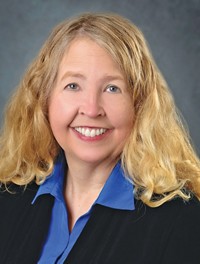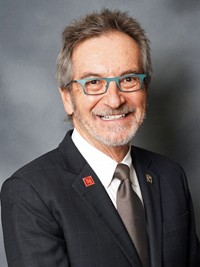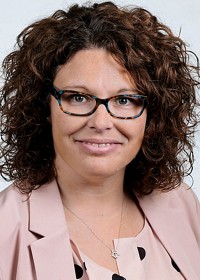Advertisement
Grab your lab coat. Let's get started
Welcome!
Welcome!
Create an account below to get 6 C&EN articles per month, receive newsletters and more - all free.
It seems this is your first time logging in online. Please enter the following information to continue.
As an ACS member you automatically get access to this site. All we need is few more details to create your reading experience.
Not you? Sign in with a different account.
Not you? Sign in with a different account.
ERROR 1
ERROR 1
ERROR 2
ERROR 2
ERROR 2
ERROR 2
ERROR 2
Password and Confirm password must match.
If you have an ACS member number, please enter it here so we can link this account to your membership. (optional)
ERROR 2
ACS values your privacy. By submitting your information, you are gaining access to C&EN and subscribing to our weekly newsletter. We use the information you provide to make your reading experience better, and we will never sell your data to third party members.
Comment
Can we stop calling them nontraditional careers?
by Natalie A. LaFranzo, Chair, ACS Younger Chemists Committee
August 3, 2018
| A version of this story appeared in
Volume 96, Issue 32

In 2015, two years after I finished my graduate training, I spoke with a journalist at U.S. News & World Report who was writing an article highlighting how Ph.D.-trained scientists were pursuing careers outside academia. The article noted that, at that time, only 42% of people with a Ph.D. in the sciences were working in academia. Similarly, results from the 2015 American Chemical Society ChemCensus survey of the chemical workforce showed that 40.4% of respondents reported working in the academic sector.
Recently, in preparation for a brainstorming lunch at the ACS national meeting in Boston, I was browsing the titles and positions of my fellow members of the Younger Chemists Committee (YCC). I discovered that only 17% are in an academic position (including postdocs, faculty, or support staff). In fact, nearly half of YCC members work in industry or government, and less than half of those members work in a bench or traditional laboratory position.
So if the scientific workforce, the chemical workforce, and younger members of ACS are predominantly employed outside academia, with many of them in nonlaboratory positions, why are these career paths still referred to as “nontraditional”? I’ll admit, I’m guilty of using this term myself. As an accomplished bench-trained chemist who has actively pursued a career at the interface of science and business, I’ve chosen not to work in a laboratory setting since the completion of my graduate education. I still very much consider myself a chemist, despite having caught myself on occasion telling others that I have followed a “nontraditional path.”
Some of this mind-set is perpetuated by what seems to be misinterpretation of the data. The ChemCensus data I cited above were preceded by the following statement: “The increasing rate of doctorate degree holders in the chemistry workforce appears to be fueled by the growth of employment opportunities in the academic sector.”
In my opinion, that is flat-out wrong. The reality is that few academic positions are available each year, and institutions train more scientists than there are faculty positions and grant funding to support. The more likely explanation for the numbers seen in the ChemCensus is that chemists who pursue these “nontraditional paths” may (incorrectly) see less value in ACS membership. This may be fueled in part by a sense of nonbelonging—the idea that these nonlaboratory chemists are seen as less of a chemist than their academic counterparts through their continued branding as “nontraditional.”
We all have to change the way we communicate with and about nonacademic chemists. We have to accept that the majority of chemistry students today will not follow an academic career path, yet we can train them as students to be exceptional professionals, which will hopefully empower them to give back and stay connected to the chemistry community for their entire lives. I believe ACS membership provides a great way to do that.
I am grateful to our partner groups within the society, such as the Committee on Professional Training, which are eagerly working with us to understand how the society can better prepare chemistry students for careers outside academia, and even outside the laboratory. These career paths should not be considered or presented to students as failures or deviations but rather as viable options for chemists to contribute their skill sets to an institution or company and to society as a whole. The problem-solving mind-set, quantitative thought process, and attention to detail that is required to achieve a chemistry degree can be applied to many positions postgraduation. By empowering students to pursue a career path that they are passionate about, rather than what is expected or “traditional,” we have a better chance of filling the workforce with smart, engaged employees.
Advertisement
Efforts from ACS entities such as the Division of Professional Relations, the Division of Small Chemical Businesses, the Division of Business Development & Management, and the grassroots work of the Chemical Innovation & Entrepreneurship Council provide us an avenue for reaching these nonacademic chemists, but more must be done. As a society, we must be more welcoming, be more experimental, and provide additional programs and resources for the nonacademic chemist. If we don’t, we risk losing touch with a critical part of the new chemical enterprise.
As individual ACS members, we all act as ambassadors of the society whether we realize it or not. As we engage with students, younger chemists, and our nonacademic colleagues, we should remind them that ACS is a home for all chemists. If you meet people who have left the society because they no longer consider themselves chemists, remind them of what makes our training unique and why they’re still very much a part of our special club. By empowering chemists from all career paths to participate in our society, we grow our professional network of trusted colleagues and expand our available resources and learning opportunities. I’m certain that creating a more inclusive society will benefit us all.
Views expressed are those of the author and not necessarily those of C&EN or ACS.





Join the conversation
Contact the reporter
Submit a Letter to the Editor for publication
Engage with us on Twitter